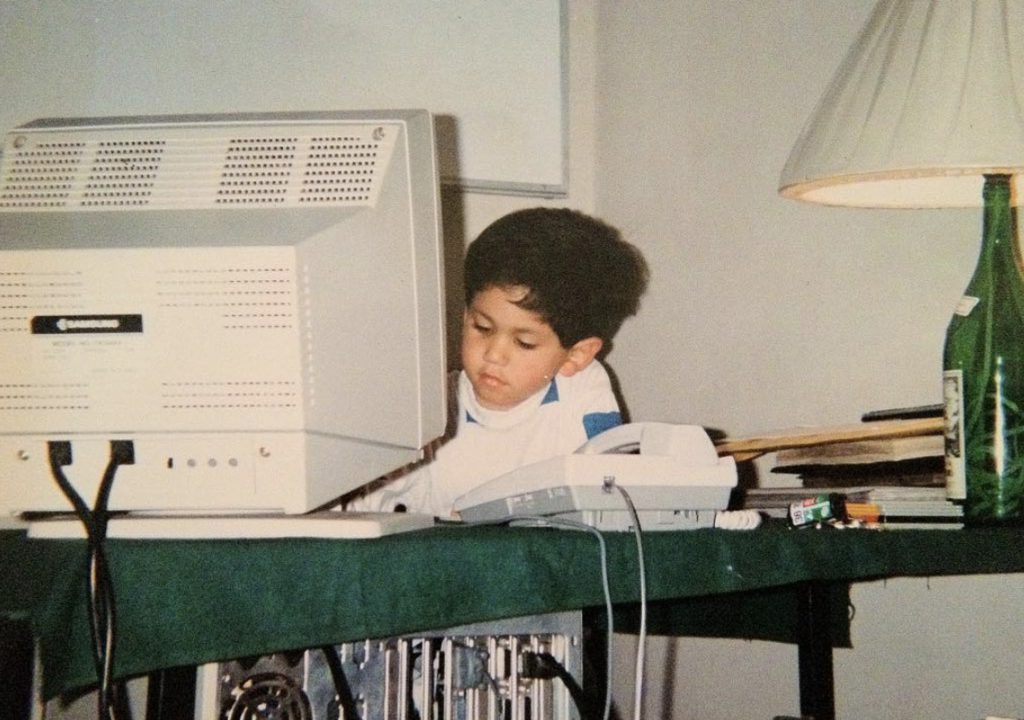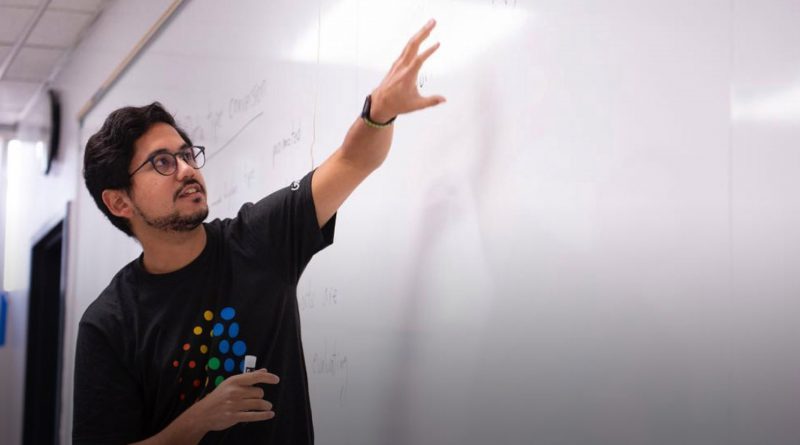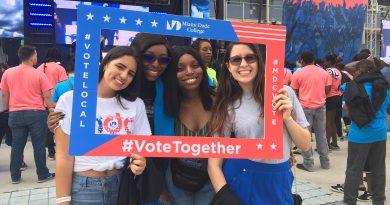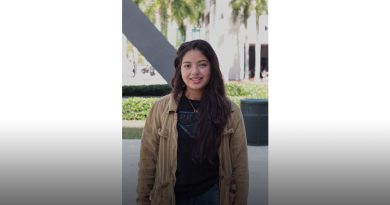Honors College Alumnus Redefining Global Health Care At Google
Eight years ago, Luis Larco was an Honors College student at Wolfson Campus.
His worries included figuring out how to pay for college after Miami Dade College.
Today, Larco, 28, has even bigger concerns. He is part of Google Brain, a team working to create artificial intelligence technology that can detect illnesses to improve the lives of humans.
“I wanted to contribute to a job that is meaningful and helps people,” said Larco, who has been working for Google since 2015. “The experience of having my parents work hard when they came here [to the United States], and then having me also have to go to college and work hard inspired me to work on projects that help society and humans have better lives”.
Larco’s path to Silicon Valley wasn’t immediate.
He emigrated to the U.S when we was 14 from Lima, Perú. At a young age, Larco showed a knack for science and math.

PHOTO COURTESY OF LUIS LARCO
“When I was four weeks old, my dad already had me in front of a computer, where he was teaching me how to code,” Larco said. “My dad was a software engineer and introduced me to the notion of computers, and also introduced me to the fact that math problems are fun, and that any complicated math or physics or advanced math or chemistry problem always goes back to addition, subtraction, multiplication, division, so I grew up with that.”
After arriving in the United States, he attended Dr. Michael M. Krop Senior High School. During his sophomore year, he became a computer specialist for the Mu Alpha Theta Honors Society and created websites for more than ten clubs at Krop to help reduce paper waste. In 2009, he was awarded the Silver Knight Award in New Media for his contribution to the school.
After high school, he attended the Honors College at Wolfson Campus.
“I initially found out about the program [MDC Honors] through a friend, she was planning on attending there, and I was really interested to find out about it more,” Larco said. “I was really interested in the fact that I could continue my studies without having to pay tuition, and it helps me during college when money became a difficult situation.”
Despite his family’s financial struggles, he found ways to attend STEM summer programs and build his network while at the College. Those opportunities allowed him to transfer to Illinois Institute Of Technology on a partial scholarship to pursue a double-major in Electrical and Computer Engineering and Applied Mathematics.
Larco has remained grateful to MDC. He was the keynote speaker during The Honors College Induction Ceremony last October and hosted a Q&A session for students interested in STEM careers.
“You only ever see students like [Larco] periodically,” said Virginia Fuillerat, director of the Honors College at Wolfson Campus. “Luis had that brilliance from the very start, and it was only a matter of developing those skills even further than he’d already done on his own.”
Throughout his day, Larco creates code for the various projects he is contributing to at Google.
That code turns into systems that are used to create the mechanisms on many of the popular Google features such as Google Street View and Home.
However, Larco’s current focus revolves around systems that can create machinery to diagnose illnesses and prevent them from occurring in the first place.
While the world evolves into a digital age, Google seems to be at the forefront of technological innovation. Before Larco began working on his current project in December they used computer-aided diagnostic screening to detect illnesses such as breast cancer and diabetic retinopathy.
The latest project Larco is working on takes a picture of the affected area and compares it to other diagnosed patients. It’s working to resolve a deeper issue in the medical industry—doctor shortages in third-world countries. Google AI Healthcare, essentially, uses machinery to bring health care to the individuals that need it most.
Although his project is based in Silicon Valley, Larco’s mission to bring machine learning to people who need it most has led him to foreign countries. He is currently working on bringing machine learning and artificial intelligence classes in Spanish and Portuguese to countries in South America.
“I was able to go to countries like Mexico and Bolivia and give introductory classes to about a hundred people, “ Larco said. “I would consider this one of my top achievements at Google so far.”
Larco said he is proud that many of Google’s projects aim to bring diversity into the conversation.
“I look forward to launching products that get to be used by people [and] makes a positive impact to humanity,” Larco said. “I’m looking forward to making a positive impact in the health care field.”




